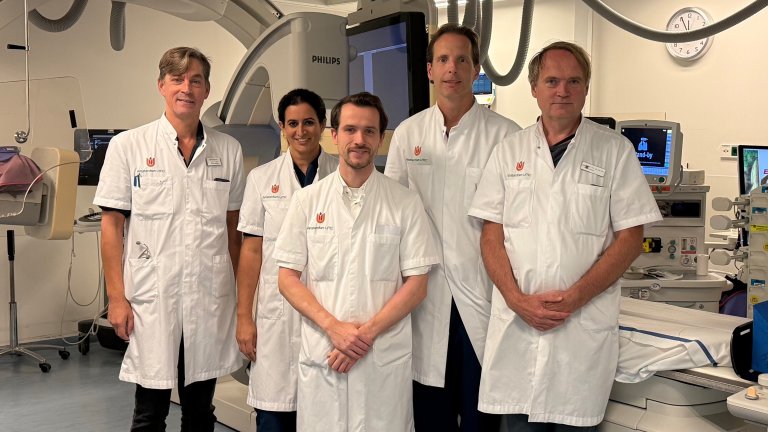The Dutch Kidney Foundation ‘Research for Health Award’ highlights promising research with the potential to significantly impact the lives of kidney patients. This year, the award goes to Lennart van de Velde and his team, for their research into a faster and less burdensome treatment for renal artery stenosis.
The driving force
A stenosis of the renal artery can lead to high blood pressure, kidney damage, and ultimately kidney failure. Treatment is possible with an angioplasty, but it is often unclear which patients will truly benefit. This means that some procedures are performed unnecessarily, while others receive help too late.
From conversations with patients, Lennart learned how difficult and frustrating the current process can be. Long waiting times, many tests, and years of living with symptoms such as headaches and fatigue. “This needs to change,” says Lennart. “Patients deserve clarity and a treatment that fits their needs.”
Physical flow simulation
With an innovation grant from the Dutch Kidney Foundation, technical physician Lennart van de Velde, nephrologist Liffert Vogt, and vascular internist Bert-Jan van den Born, in collaboration with the University of Twente, developed a computer model: a kind of digital twin in which the flow and turbulence of blood through the narrowing are simulated. This method has been validated and applied to individual patients for the first time. The computer model of a patient can be created based solely on a CT scan, allowing for an almost immediate assessment of the severity and potential success of treating the stenosis.

International interest
In the project, the computer model was tested against invasive measurements in the renal artery of 28 patients. These complex measurements can currently only be performed at Amsterdam UMC, thanks to a unique collaboration among cardiologists, radiologists, internists, and technical physicians. The computer simulation was validated with these measurements and proved to be highly reliable. The computer model has attracted international interest and is now being used in a large randomized study in Denmark, thanks to a collaboration between Amsterdam UMC and Aarhus University Hospital. This study aims to demonstrate whether the computer model can indicate which patients are best helped by angioplasty and which are not.
Significance for patients
The potential impact of this approach is significant. Patients no longer have to wait unnecessarily or undergo treatments that offer little benefit. They receive the right care more quickly, helping them maintain their quality of life.
Lennart: “My dream is for this method to become available worldwide. That every patient receives the right care on time—without detours, without unnecessary burden.”
This text has been translated and adapted from the original news article from the Dutch Kidney Foundation.

